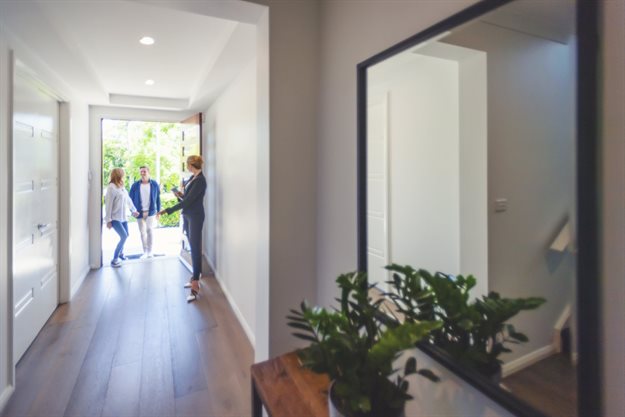While many - particularly the millennial generation - chose to travel and live more 'freely' in the past, priorities have since changed, says Grant Smee, property investor, entrepreneur, and MD for Only Realty. Driven by attractive interest rates and more lenient loan criteria, tenants now have their sights firmly set on owning a home.

Image source: Gallo/Getty
“Travel and event restrictions remain in place and lockdown has forced many to re-evaluate their priorities,” says Smee. “The pressing question right now is: ‘Should I continue renting or should I buy?’. The simple answer is to do your homework and to consider the pros and cons.”
“However, before you even begin to look around, make sure to request a free home loan prequalification. These can be easily accessed online via bond originators such as Ooba Home Loans. This gives you an idea of what you can afford and what your credit rating is.”
Smee says that a credit rating of 600-plus is what you need to be considered for a home loan. “A prequalification is a good place to start in determining whether you would qualify for a bond.”
In addition, he advises potential buyers to start scoping out the property market at least three to six months prior to putting in an offer to purchase. “Once you know what you can afford, chat to agents in your area and register to receive alerts for property listings on Property24, Private Property, etc. This gives you a better idea of what is available in your price range, what properties go for in areas of your choice and what the demand is like.”
“Doing your research will empower you when it comes to making a deal. It gives you bargaining power through your knowledge of the area and the market in general,” he says.
To rent or not to rent
Smee’s renting pros and cons:
- Pro: flexibility. “If you’re undecided of where you want to invest or whether your income will be secure in the longer term, then renting is best for you.”
- Pro: not responsible for added costs. “Homeowners are sometimes hit with costs that tenants don’t have to factor in. These relate to maintenance, levie, rates and taxes, and home insurance.”
- Pro: less responsibility. “Renting a small lock-up-and-go is appealing for those who want as little maintenance as possible. In addition, if one were to be retrenched or needed to move quickly, it would be simpler.”
- Con: no return on investment. “The obvious downfall is that you are paying for an asset that you don’t own and will not make returns on.”
- Con: bound by rules and regulations. “Rental agreements are rigid, and a tenant is bound by this. Failure to comply can result in fines and further legal action (in a worst-case scenario).”
To buy or not to buy

Grant Smee, MD, Only Realty
“Firstly, if you are considering buying a home, a question that I often receive is: ‘Is it better to finance your home over 20 or 30 years?’. On a 20-year bond, you pay lower interest rates with higher monthly repayments whereas on a 30-year bond, you pay higher interest rates with a lower monthly repayment,” says Smee.
“A 30-year bond is better suited to an investor who has a tenant to cover their monthly repayments and there is a higher chance of achieving a positive cashflow. However, paying off your bond sooner is better. Add an extra R500 per month (at minimum) and you will see the difference that it makes. Chat to your bond originator to help you do the maths.”
Pros and cons of home ownership:
- Pro: ownership and equity. “Owning an asset, regardless of the economic climate, is a positive. If you look after your home and focus on paying it off quickly you can still make a return rather than paying off someone else’s bond."
- Pro: freedom. “You now get to decorate, renovate and call the shots for the most part.”
- Pro: rental income as an additional revenue stream. “If you’re looking to rent out your place, then a tenant can cover your bond and (hopefully) your bills.”
- Pro: benefit to your credit score and finances. “Your mortgage account is a great place to put your savings, it accumulates interest and its also got a low interest rate should you wish to borrow against it in future. In addition, making repayments on your home each month (on time) improves your credit record.” To add to this, Smee says that there are tax deduction benefits in owning a home.
- Con: hidden costs. “Be sure to download a home loan calculator prior to putting in an offer to purchase. This way, you know what the transfer fees are as well as the attorney fees. Remember, that there are transfer attorneys (for properties over R1m) as well as bond registration attorneys so you will need to factor in fees here too.”
- Con: less mobility. “Spur of the moment decisions to backpack the world or relocate for work will require more thinking and admin time.”
- Con: returns not guaranteed. “No returns are set in stone. You might over-invest over time and never make your money back (let alone turn profit). That is why it’s important to do your research prior to purchase and to pay off your home as quickly as possible,” Smee concludes.
























